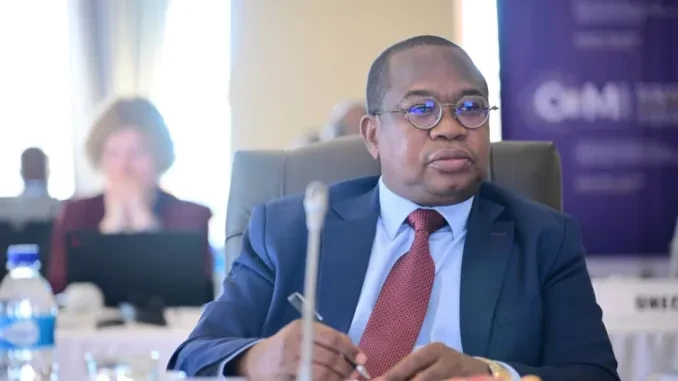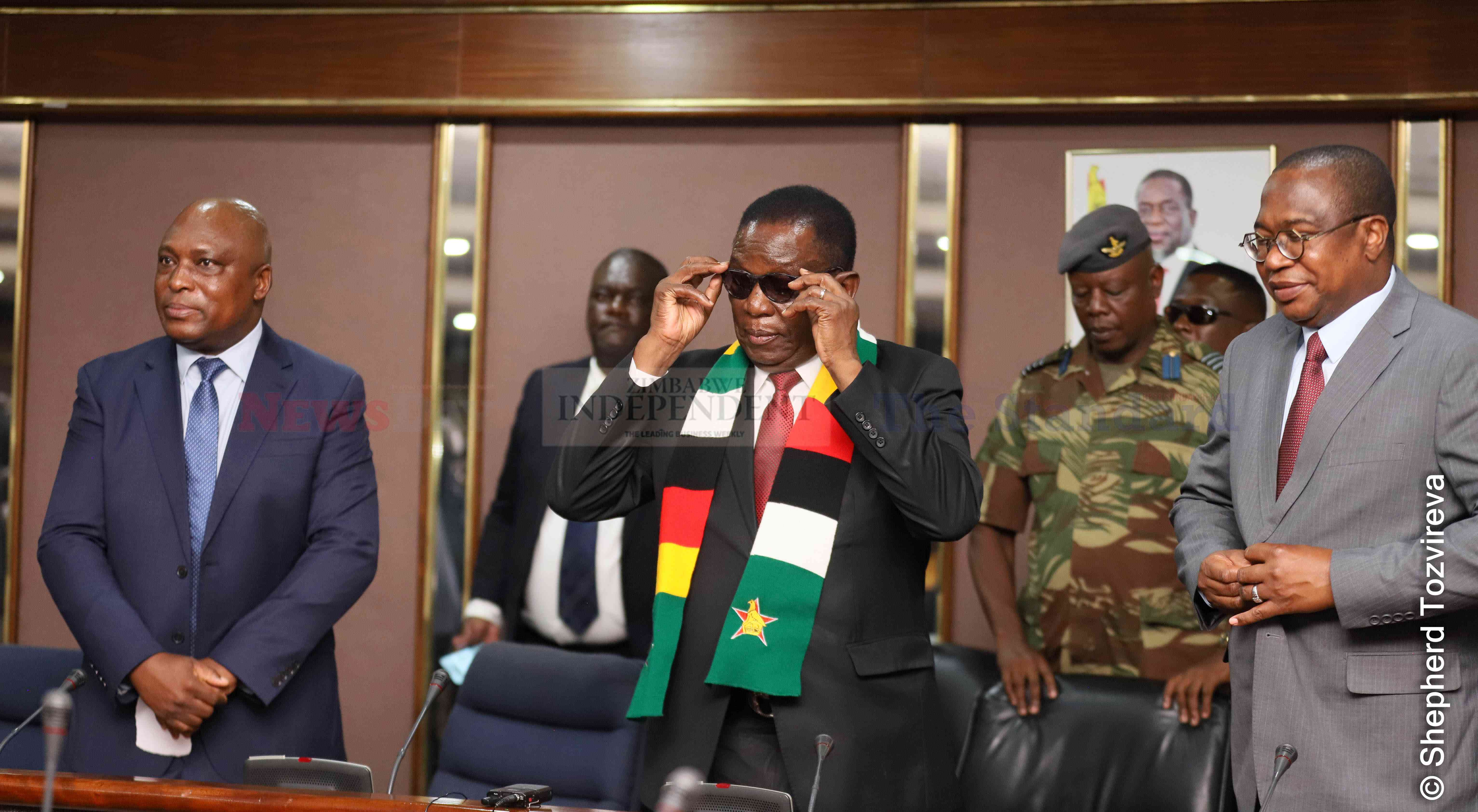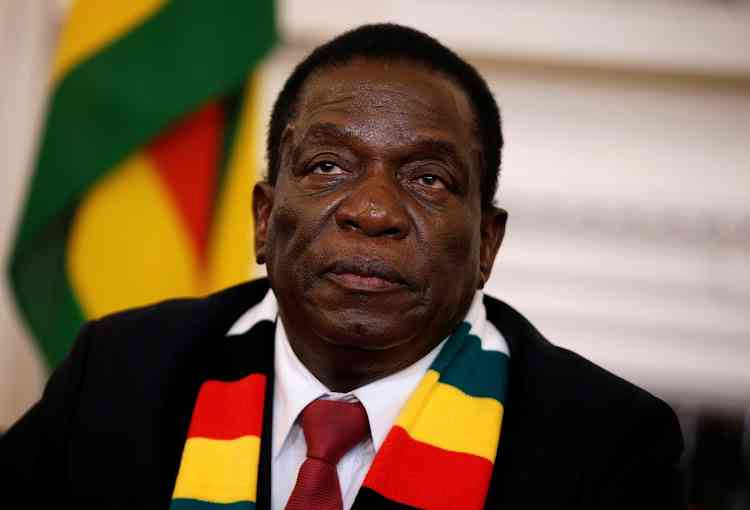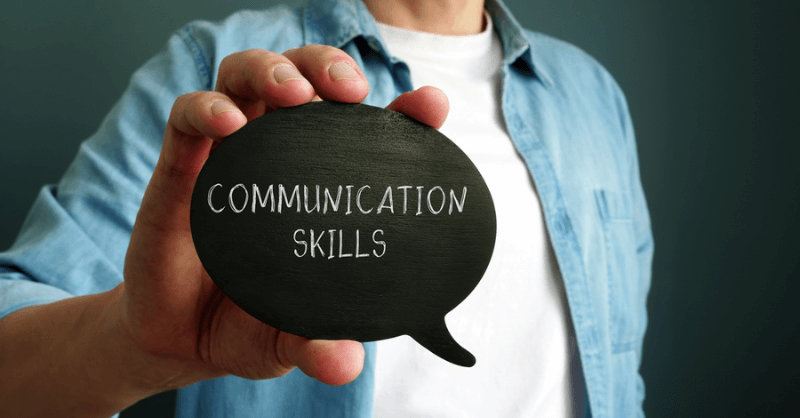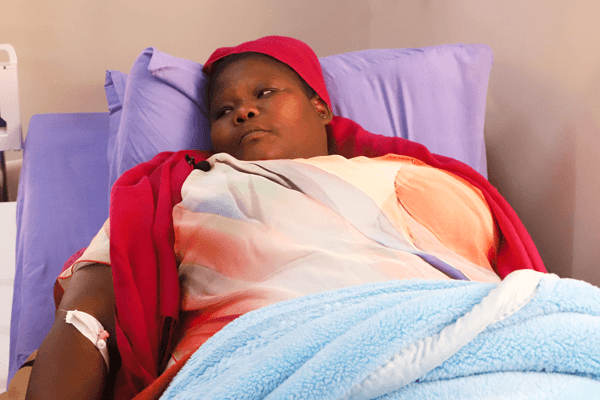
ON a Friday night back in March 2018, Daves Guzha sat inside Theatre in the Park, smiling proudly as roars of laughter rang from the sold out crowd that had come in to watch Operation Restore Regasi.
Playwright Charles Munganasa’s play on the fall of Robert Mugabe was not just a play; it was also a key litmus test for artists still unsure of their boundaries under the “New Dispensation” of President Emmerson Mnangagwa.
So far, so good, Guzha thought. The government had cooperated with producers of the play to the extent of the security forces providing actors with camouflage, which is banned for civilians.
The title of the play was a joke on Vice-President Constantino Chiwenga, who mixes his ‘Ls’ and his ‘Rs’. Yet there was no offence taken, it seemed. There was, therefore, reason for Guzha, who faced censorship in his 35 years of promoting the arts, to believe that things were about to change.
“Maybe there is now more freedom of expression that is beginning to build up and we need to keep the momentum,” Guzha told reporters at the time. “We need to keep on pushing the boundaries before these guys in power start actually saying ‘it’s enough’.”
A year after that play, it appears the arts have found that boundary, and it does not stretch any further than where Mugabe left it. Government is still paranoid and cannot take a joke, and there are some that stand ever ready to come down on those who would dare exercise their right to mock their leaders.
Wednesday night’s reported attack on Samantha Kureya, one half of the Bustop TV comedy and satire crew, has raised fears among Zimbabwean creatives that the freedom they dared to hope for had finally arrived was a fleeting phase. “This is not the first time,” Kureya said from her hospital bed on Thursday. “We have been arrested before and taken to the police station for our skits.”
According to Kureya, her attackers were peeved over a video in which she acts as a landlady evicting her tenant, a policeman, after he took part in crushing last Friday’s banned opposition protest march in Harare.
- Chamisa under fire over US$120K donation
- Mavhunga puts DeMbare into Chibuku quarterfinals
- Pension funds bet on Cabora Bassa oilfields
- Councils defy govt fire tender directive
Keep Reading
“They said to me, ‘you posted a video saying we must leave your house, now it is you that has had to leave your house’. They beat me,” Kureya said.
For artists, a pattern is beginning to form.
Late July, police stormed the screening of Lord of Kush, a film by a young director, Tendai Maduwa. Guzha and creative director Peter Churu. Together with film producer Kudakwashe Bwititi, they were arrested and charged under the Censorship and Entertainment Control Act for exhibiting an unsanctioned film.
“We were ordered to jump into a truck to Harare Central station, kept there for over an hour waiting to be charged,” Maduwa said.
The group are expected in court for trial on August 29.
It was yet another case of a government rushing to silence voices, but only achieving the opposite.
Before the arrests, nobody had heard of the film. Its plot line is murky, and it was never going to be a hit. Set in Pakistan, it follows a Zimbabwean diplomat deployed to the fictional Islamic State of Kush, where his mother sets off a religious massacre after trying to convert two children to Christianity. Government spokesman Nick Mangwana said authorities were concerned that Kush posed “security implications for a foreign power”.
Dashed hopes
A year after that big and hopeful Operation Restore Regasi night, Guzha, who ran arts agency Rooftop Promotions during the darkest years of Mugabe’s rule, said the arrests had been a throwback to the old years.
“We got to know the laws well, when it was really tough under Mugabe,” Guzha says. “We had all hoped that, since this is the new dispensation, we would all work together, put shoulders to the wheel, to build our country’s image.”
Arresting artistes only undermined the reputation of the government, at home and abroad, he says. “Our artists can be the best ambassadors of Zimbabwe to the world,” Guzha says, however, further noting that there would be no self-censorship at the venue, which has hosted international plays and music shows for decades. Guzha still holds out hope that President Mnangagwa would honour his committed to opening up free spaces, pointing to his meetings with activists and traditional leaders in Matabeleland to discuss Gukurahundi, an unthinkable proposition under Mugabe.
“We want to view this incident (Kush arrests) as just an isolated one,” Guzha added just after the arrests. But after the Gonyeti incident, creatives now fear that it wasn’t. — newZWire

